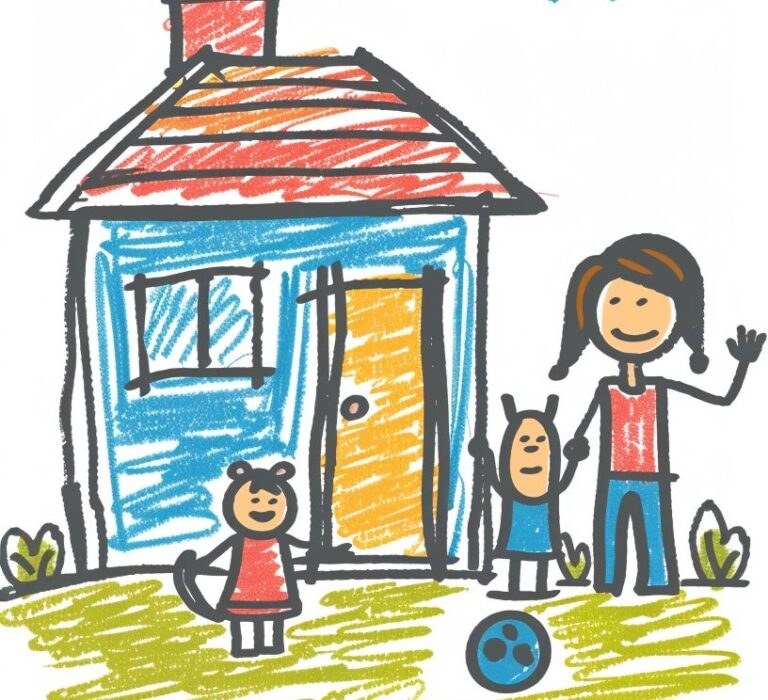Aristotle on ‘Happiness’
Life often feels like a long hallway, where every step we take is met with scrutiny and judgment, not just from others but from ourselves as well. The ups and downs are part of everyone’s journey, but it takes true wisdom to navigate these challenges gracefully to learn the art of living.
Two outlooks towards the life –
We’ve all heard that life is a journey to be enjoyed. This viewpoint urges us to embrace every moment as a chance to enhance our lives. However, our approach to this idea can differ significantly. Some people have relied on the shorter route to a happy life, which has, in some cases, led them astray.
Some people define living life to the fullest by enjoying their wealth and resources to the utmost. They seize each day, seeking joy in the present moment and indulging in life’s pleasures to chase a happy life. This often includes the pursuit of public recognition and fame, symbols that can provide a sense of superiority and validation. Their happiness hinges on these immediate gratifications.
But could these pursuits be draining not only their time and resources but also their priceless mental and physical health? Are they developing habits that prioritize materialistic desires over nurturing their well-being and long-term fulfillment? This brings to light an important truth: while pleasure is fleeting, true happiness is enduring and long-lasting.
On the flip side, some view every moment as a chance for personal growth and lasting happiness. They’re dedicated to continuous improvement through small, deliberate steps—whether that’s learning new skills, exploring personal interests, or focusing on self-development. While they do spend money and resources on leisure and recreation, these are balanced by their investments in productive and enriching choices. For a happy life, they believe that by making the most of each day, they’re not just living for today but also laying the groundwork for a brighter future that reflects their actions and benefits them in the long run.
Their approach extends beyond personal progress; it’s about building a supportive community where everyone can thrive together. They focus on creating environments that encourage collaboration and mutual support. Studies show that such environments not only boost individual well-being but also foster collective success. When people help each other succeed and find happiness, it creates a ripple effect of positivity and fulfillment.
Aristotle on Happiness–
After walking down the lane of these two broader approaches toward life, let us smell the fragrance of the most wanted scent in life—happiness and what is mustered by Aristotle on Happiness.
When the sounds of melancholy start pouring out so intensely, there is always a dying desire to fetch the rays of happiness. However, happiness is not a simple coin to spin; it is looked at differently by distinct people.
Is it an art of perception or our thinking towards life? Is it derived from the wealth or resources that we have? Is it dependent on virtues or moral actions?
In the hullabaloo of these looming questions of what is happiness and how to be happy, the answers cannot be many. In fact, there is a single road with the answer to all these questions, and that road is well-dug by the ancient Greek philosopher of the 4th century BCE—Aristotle.
In Nicomachean Ethics, a popular book by Aristotle, the theme of happiness is well-outlined. He coined the counterpart of happiness, ‘Eudaimonia’.
Aristotle’s Eudaimonia is the concept that presents a richer and broader perspective, suggesting that while happiness is often seen as momentary or interpreted as an emotion, Eudaimonia is a deeper state, independent of luck or fortune. It depends on:
- Human rationality, flourished by contemplation.
- Human actions, measured by morals or virtues.
These components complete the circle of Eudaimonia. The destination is a life well-lived, achieved when the human mind reshapes adversities into growth opportunities through reform and revival. Ultimately, this is dependent on rationality, nurtured by virtuous and productive actions.
A vibrant quotation by Aristotle—“Happiness depends upon ourselves”—highlights the capacity of the human mind to channel the way to a state of satisfaction. This state seeks faith in both the creator and the human creation through diligent and yielding actions.
Four Levels of Happiness–
Aristotle on happiness is enveloped by the Four levels of happiness which is a categorical description of happiness where these hallways are mirroring us with ourselves and our nature so that we can tame it down to attain a meaningful life and not just a materialistic life limited to this world.
Level 1- Laetus
It is externally stimulated or generated through the sensory organs. Savoring good food, enjoying a new outfit, partying, or hanging out, and other physical pleasures all fall into Level 1. While there is no harm in indulging in these pleasures, they are temporary and their effects are short-lived. If a person seeks only these pleasures, they will never attain their higher purpose beyond such transient joys. Therefore, it is important to maintain a boundary when considering this level for a larger picture of understanding the art of living.
Level 2- Felix
Second level of happiness is focused on self-satisfaction that contributes to a happy life. Humans have a natural inclination to achieve personal milestones where their abilities, skills, and work are recognized and praised. While striving for personal achievement is natural, solely embracing this level can lead to constant comparison and competition with others. This relentless pursuit can create an unhealthy mindset and negatively impact one’s ability to thrive in a collective environment.
Level 3- Beatitodu
Under this pavilion of happiness, another way to understand how to be happy is discussed. This focuses on durability and dependence on society. It expands a person’s circle, leading them to serve, volunteer, and embrace the wealth of compassion, generosity, and productivity that fosters societal growth. A person’s achievements are used to uplift the downtrodden, not for personal gain or recognition, but to lead a purposeful life that extends beyond individual fulfillment. It proclaims that ‘The longer the effect of happiness is, the intenser ray it is expected to reflect on inner self’.
The focus shifts from personal gratification to collective well-being, creating a ripple effect of positivity. By engaging in acts of service and volunteering, individuals contribute to the betterment of society, experiencing a deeper and more lasting sense of happiness.
Level 4- Sublime Beatitodu
This level of happiness lays the groundwork for a state that fills the human soul with a profound, divine peace from the creator, the supreme power. At this elevated state, one can find serenity even in challenging times. The insight that ‘Perfection is an illusion’ opens the door to deeper personal growth. It reveals that in an imperfect world, lasting peace is more attainable than momentary pleasures, which are often temporary. A state of inner peace persists, nurturing moments of joy and strengthening our ability to accept that the creator’s plans may surpass our own. We are meant to cultivate a resilient hope that shines brightly.
The answer to the question ‘how to be happy’ is completely incomplete without this level. The strength of their faith supports their journey, turning them into a beacon of growth, justice, forgiveness, courage, wisdom, and rationality. This deep acceptance allows them to achieve results that go beyond the material world, filling their soul with a profound sense of purpose and fulfillment.
Takeaways-
Aristotle’s vision for happiness transcends mere philosophy; it represents an enlightened path discovered through the power of reasoning, a unique gift of the human mind. His concept stands out because it defines purposeful living for human beings. Just as plants instinctively know their purpose—whether to bear fruits, vegetables, herbs, or flowers—and celestial bodies like the Sun and Moon adhere to their roles with unwavering punctuality, animals contribute to human life by providing essential resources like dairy, wool, and food products, humans too must recognize and align with their purpose to lead an orderly life.
In this art of living, achieving lasting peace involves focusing on controlling what is within one’s power. If one faces deficiencies in health or wealth, they have the choice to either lament these shortcomings or confront them by steering their actions toward virtue and valor. This journey underscores that each person has the capacity to shape their own life according to their values, rational thinking, reflection, and productive choices.








Your writing wraps around you like a warm blanket, providing comfort while challenging you to think deeper.